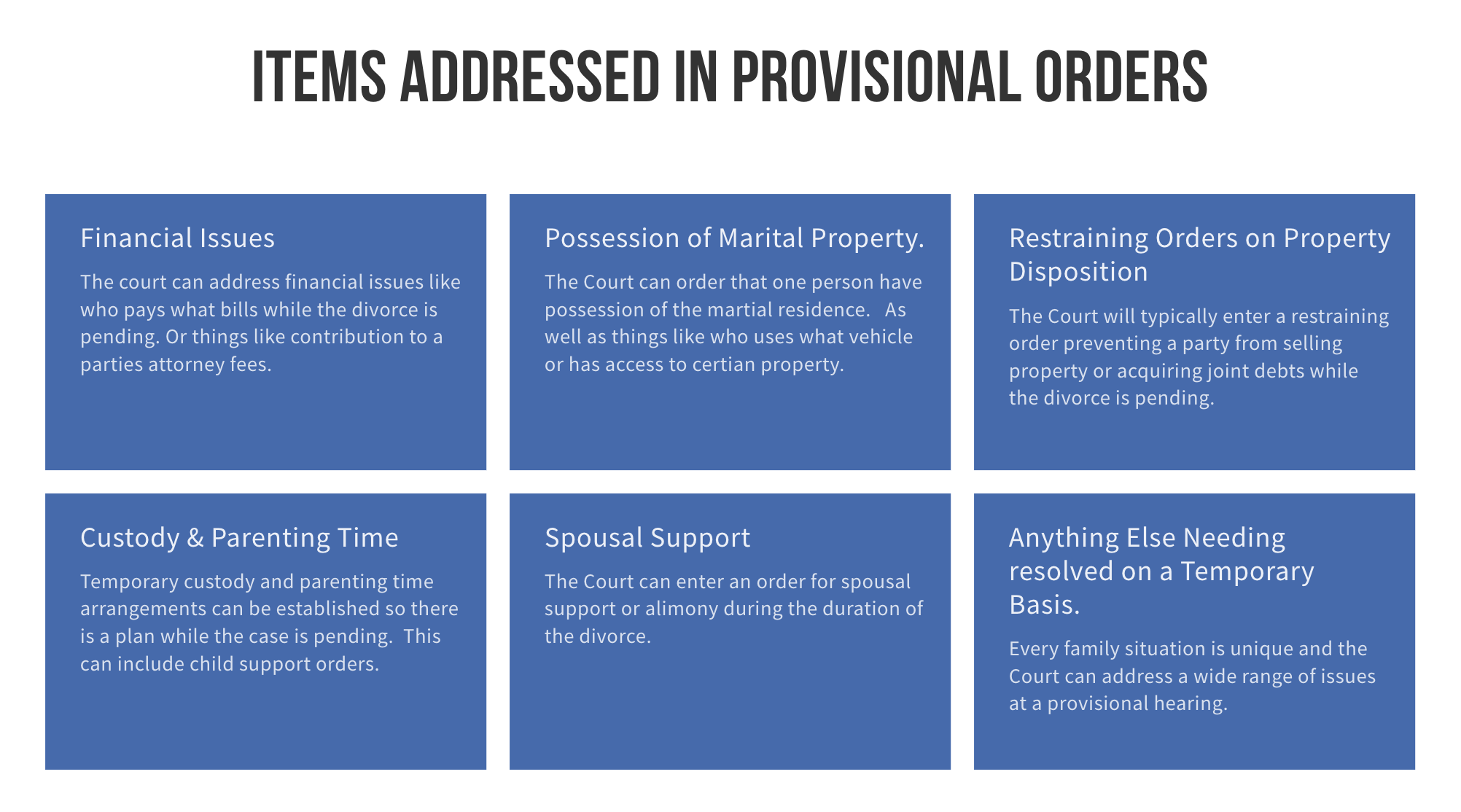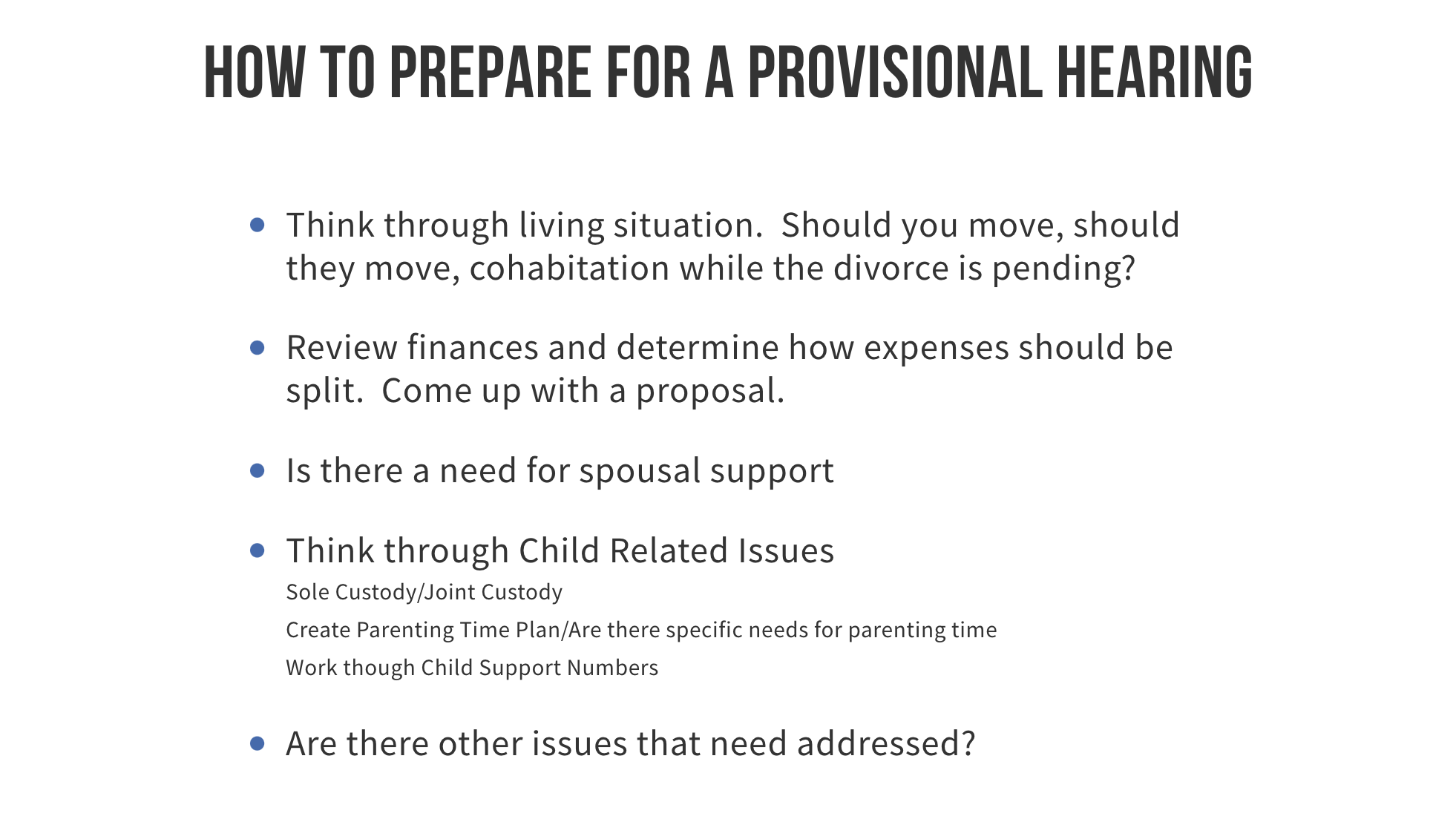Understanding Indiana Divorce: Provisional Orders Explained
The Significance of Provisional Hearings
Provisional hearings serve as a cornerstone of divorce proceedings, aiming to provide structure and resolution to pressing issues that cannot wait until the final judgment. These hearings allow for the establishment of temporary orders to address concerns like property possession, child custody, and financial responsibilities.
What Issues Are Addressed?
A provisional hearing is the platform where various critical issues are addressed. It's the place to determine temporary maintenance, which involves one spouse providing financial support to the other during the divorce. Additionally, property possession, bill payments, child custody arrangements, and debt responsibilities are resolved, offering a structured framework during the ongoing divorce process.
Legal Procedures During the Hearing
During a provisional hearing, both parties involved have the opportunity to present their case. This typically includes offering arguments, witnesses, and evidence that support their respective positions on the issues at hand. At the conclusion of the hearing, a judge issues orders that remain in effect until the divorce is finalized, unless modifications are made by mutual agreement or court decision.
Negotiating Agreements
While a provisional hearing is one way to establish temporary orders, parties involved in the divorce can also opt for negotiated agreements. These agreements, when mutually reached and approved by the court, provide an alternative method for addressing urgent concerns. They offer flexibility and allow divorcing parties to have more control over their immediate situation.
Ensuring Structure and Clarity
Provisional orders, whether established through a hearing or mutual agreement, are essential in providing structure and clarity during the often-chaotic divorce process. They ensure that pressing issues are addressed promptly, making the divorce journey more manageable and predictable.
In summary, provisional hearings are a critical component of divorce proceedings, designed to address immediate concerns and provide structure during a challenging time. By understanding the importance of these hearings, divorcing parties can ensure that their rights and interests are protected throughout the divorce process.



